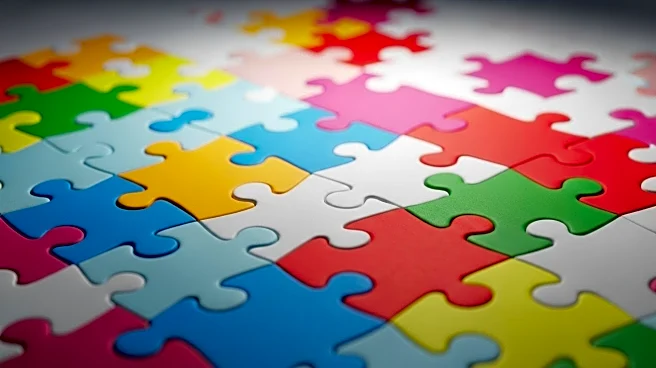What is the story about?
What's Happening?
OpenAI has released a report indicating that only 1.9% of conversations on its ChatGPT platform are related to relationships and personal reflection. This data was gathered from approximately 1.1 million conversations between May 2024 and July 2025. Despite the low percentage, experts argue that the report may not fully capture the extent of relationship-related discussions. The report also highlights other conversation categories, such as 'How-to Advice,' which comprises 8.5% of messages, and 'Greetings and Chitchat,' making up 2% of interactions. Jeffrey Hall, a professor of communication studies at the University of Kansas, notes that many conversations indicative of relationship talk are not necessarily categorized as such, suggesting that the ongoing nature of these interactions contributes to relationship building.
Why It's Important?
The findings from OpenAI's report have significant implications for understanding human-AI interactions. As AI becomes more integrated into daily life, the nature of these interactions can influence social dynamics and personal relationships. The report suggests that while direct relationship conversations are minimal, the broader context of communication on ChatGPT may foster companionship and trust. This is particularly relevant for socially isolated individuals and teenagers, who are more likely to form bonds with AI due to their developmental stage and need for social validation. The anthropomorphizing of AI, where users attribute human-like qualities to chatbots, further complicates the understanding of these interactions.
What's Next?
OpenAI's findings may prompt further research into the social implications of AI companionship, especially among vulnerable populations. The company has already taken steps to address concerns about overly flattering or agreeable chatbot behavior, which could influence user perceptions and interactions. As AI technology continues to evolve, stakeholders, including researchers and policymakers, may need to consider ethical guidelines and support systems to manage the impact of AI on human relationships. Additionally, the exclusion of users under 18 from the report highlights the need for targeted studies on the effects of AI interactions on younger demographics.
Beyond the Headlines
The report raises questions about the ethical and cultural dimensions of AI companionship. As AI becomes more adept at mimicking human interaction, it challenges traditional notions of relationships and trust. This could lead to long-term shifts in how society perceives and engages with technology. The potential for AI to fulfill emotional and social needs may also impact mental health and societal norms, necessitating a reevaluation of the role of technology in personal and communal spaces.















